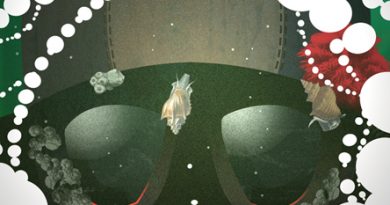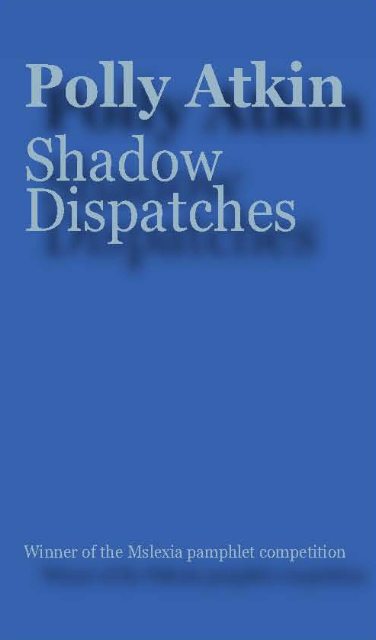‘Lune’ by Sarah Hymas
-Reviewed by Billy Mills–

Lune: a leash for a hawk; fits of lunacy; a crescent formed by the overlapping of two circles; a crescent moon; a river whose tidal estuary is at Plover Scar, Lancashire; a poem in five sections by Sarah Hymans printed as a neat concertina or gatefold pamphlet, subject of this review.
The poem begins
Early mapmakers kept their backs to the sea
and then turns its face seawards, in a bay, estuarine, crescent-shaped perhaps, a margin. And as befits a poem set in this liminal territory, much of what it has to communicate is uncertain. The effect of sun on water is captured in a series of sharp images, but these are punctured thus:
none of which you notice
for being sky-blinded
A woman, nameless, engages with the narrator, their subject love and its ambiguities. A man crosses their line of vision
He might
have been from the Environment Agency
for all we knew. Or the power station.
The sea absorbs some of the land’s offerings, refuses others, keeps itself to itself, acts as a limit, a leash.
Still, I walked the sea wall
wanting to get further away but
the sea made that as good as impossible.
And so the narrator waits by the shore for those things it may give up:
This isn’t Hollywood.
We can only guess what’ll happen next.
Lune may be a small pamphlet, but the poem it contains is capacious, baggy even, containing multitudes. Hymas used this ‘intertidal’ space to reflect not only on our relationship with the ocean, but also questions of ecology (there is the power station, mercury in the water, radiation), love, mortality and the limits of human understanding. Her technique and her focus on people in the world reminds me of that excellent poet of the liminal, Chris Torrance and of the poets whose work is collected in Harriet Tarlo’s anthology The Ground Aslant.
Lune is a rich addition to this contemporary pastoral tradition: part narrative, part evocation of land- and sea-scape, part metaphysical meditation on what the world is and what it is to be in that world. The title in the first instance derives from the river, but the other definitions of lune that I referred to in the opening paragraph of this review all seemed to me to come to bear on the poem as I read it. The sea is a leash, limiting the walker’s range of movement, the pull of the moon is what creates that intertidal space, the bay’s crescent is formed by sea and land intersecting, and these are all things the poem brings to our mental vision.
The poem is driven by a need to see, in every sense of the word. And it recognises, or Hymas recognises, the difficulty of this project. The stanza that begins with the lines about Hollywood quoted above opens with the observation that
And still some of us can’t see
even when we’ve dived under the surface.
and this borderland between immersion and understanding is another of the poem’s key liminalities. Inasmuch as this meditation reaches a conclusion, it is in the careful conjunction of the verbs wait and search in the closing lines. Those who would search for the sea do so by waiting; those who wait by the sea are searching for an understanding of what it means.
One risk that can be associated with this kind of open, inclusive versification is that it may become a little too loose. For instance, these lines that occur just after the man appears
We didn’t shout after him, to warn him
of the dangers,
of currents, radioactivity, or channels.
might benefit from a little pruning, some greater concentration. However, on the whole Hymas avoids this pitfall. The music of her verse is in the detail, telling patterns of vowels and consonants in lines like
Wish upon a brittle star,
rag worm, lug worm, clam.
or the weave of sibilants through this aural evocation of a seaside funfair:
Some say
they can hear the shale whisper gas gas
but it’s more likely to be girls screaming
on the Big One,
letting their skirts fly, necklaces spin.
The folded card pamphlet is my favourite form of poetic ephemera. At its best it serves as a calling card, an introduction to a poet whose greater acquaintance you might like to make. Lune is as good a card as is likely to drop through your letterbox this spring. Pick it up and read it; you won’t regret it.




Pingback: Announcement 2: Another Review on Sabotage | Elliptical Movements
Pingback: Saboteur Awards 2013: The Shortlist | Sabotage
Pingback: Saboteur Awards 2013: Published Poetry | Sabotage
Pingback: Six self-publishing surprises | b1c1_6
Pingback: The Sabotage Reviews top 10 of (published) poetry this year | Sabotage